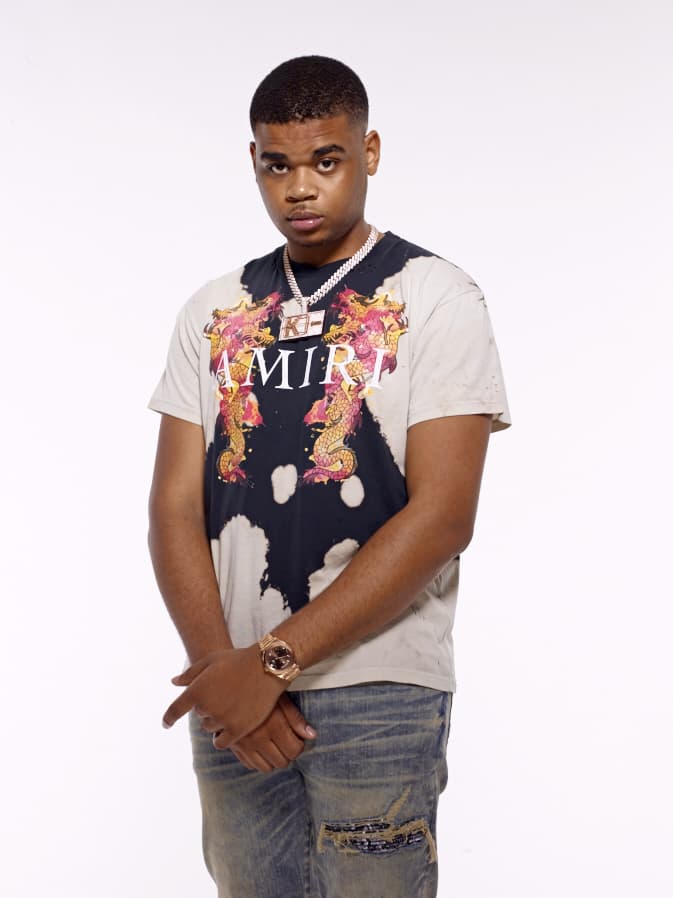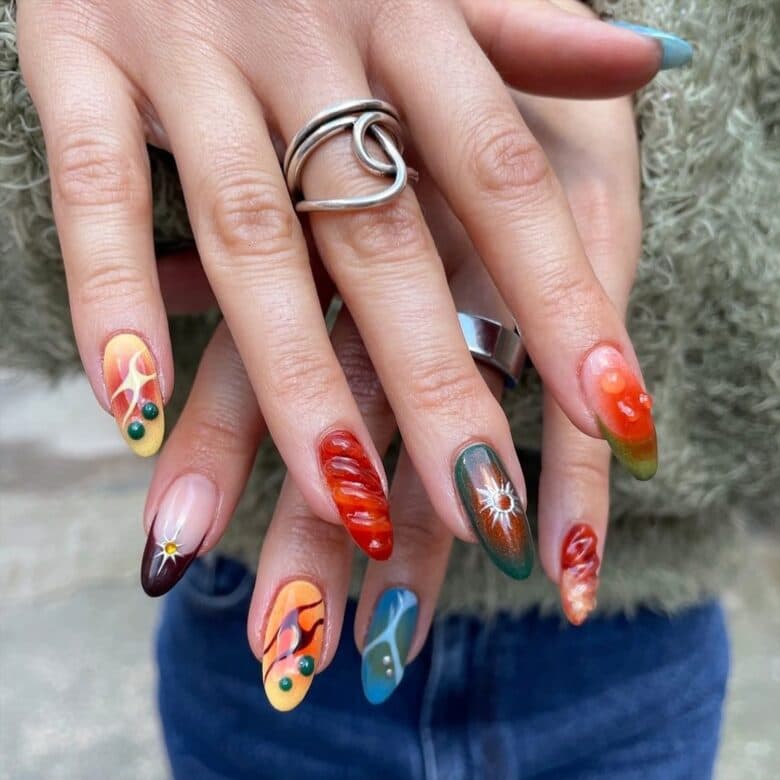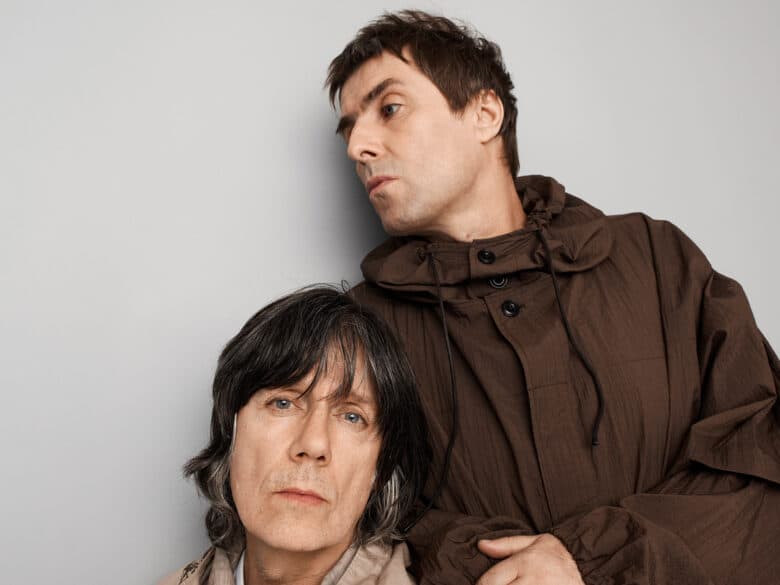“All characters in this visual are entirely fictional. The events that occur are purely symbolic and should not be taken literal.” A quote pulled from the intro to David Blaine, the 2016 single by K-Trap that inducted the South London rapper into the UK Drill corpse d’elite. The British rendering of the Chicago-bred subgenre has catapulted a new wave of artists living life in disclaimers. With a relatively new career, K’s imprint on the scene has superseded the expectations of many. Standing at a solid 6”2 and athletic build, all preconceptions faltered at the waistline. A tender-toned introvert with an affinity to solitude, the newly unmasked rapper has a story that many Black British men have come to endure.
Like the many masked men of history, with great strife comes forced anonymity, but through years of perseverance, life in the shadows eventually comes to the light. Sooner rather than later, K-Trap has arrived: foot firmly on the necks of doubt, this is not a rebrand, it’s his emancipation. For us all, identity protects us from the pressures of the outside, K recounts this in his debut single, “Mask Off”, off his newest mixtape, No Magic. From the offset, fellow masked musician, 67’s LD can be heard saying,
“You n****s weren’t sitting down for this
N****s never had no feds on their back, they weren’t in no war
They weren’t flying no birds”
When asked about his intention, the rapper states: “In the song that you’re talking about, that was definitely a reason for it. When I wore the mask, I didn’t think of taking it off, but when it came to my music career and things got serious, it came to a point where I thought to get to the next stage, the mask needs to go.”
Three years with a visual identity that fans and industry officials have come to know as distinct as an LD, MF Doom, or even H.E.R, K- Trap’s commitment to facelessness is rightful. As we as a society become increasingly interconnected, with social media connecting us more than ever before breaking the untouchable seal of celebrity, the public’s entitlement to information, be it, personal, public, or downright stupidity, we’ve come to a point where the validity of an artist is questioned by their silence on matters that the collective conscious deem unavoidable not to critique. Today, silence isn’t a virtue and at a point, neither is facelessness. Although K-Trap’s reservations were present and rightfully so, “I’m still K-Trap” Get to know [me] again. “It [the mask] was me for a moment in time, but it wasn’t me anymore.”

So, who is K now?
“Trying to be more fun. I think that, yes, I still make the music that I did, but now with certain songs, I feel that not everyone understood… songs like ‘Big Mood’ is exactly what I would have said but a bit more friendly and jumpy. I think I pushed the bar a bit. It’s easier to understand, I wasn’t even getting into anything too deep… but, when I make music, it’s a bit difficult to understand unless you come from where I’ve come. ‘Big Mood’, everyone can relate and fuck with it,” he says, slightly more open and joyous then at first than intended.
Other genres are never as conscientious about public perception as that of Drill, a result of violent censorship from the press and governing bodies, universalising their sound to appease the masses. Must UK rap put restrictions on their content? Is there really anything wrong with making music for people that look and talk like you? “It’s not my goal,” says K, “But I will be trying new things.”
Entitlement is at the forefront of all major discussions regarding music. Remembering that again music, once public, is a service but ultimately, intellectual property of the artist and should be treated as such. This constant need to neatly package UK rap, whether it’s grime, drill, afro swing and more into distinct classifications, genres still very elementary with many of its forefather still active and viable, is a very difficult task. From a generation that recognize grime, for example, as no less than 140 BPM, clashes between area folk for ratings, barring over premade riddims (Scruface & Stimpy, or Nutty Violins to name but a few) and studio time that may or may not depend on popularity regardless of your fee payment. Now, the sound of UK rap has taken on various different influences making it near impossible to truly dictate where artists stand, case by case.
Drill more so than grime, however, is neatly defined as its roots lay stateside. “I came up off of Drill, but Drill now, is not the [same] drill when I first started making music. I don’t just rap Drill, I just rap. I feel like a lot of it [drill]… I can’t really take to it. Some of it is watered down and some of it is a bit crazy, like woah!”
Upon reflection, perhaps that in itself is enough. A young rapper, still navigating life and his craft. The mask was who he once was. Today, “I just don’t want people to think that I’m antisocial, or I’m too bad to socialize with other people. I want people to take me as an artist. At the end of this year- next year. Obviously, I want to get bigger and better, but, not by changing my image every minute. I’m happy with where I am, right now.”
At the age of 23, with a blossoming career in rap and enjoying its finer things, the most refreshing thing to hear is that, after this interview, K-Trap would embark on his usual press runs and trips to the studio in preparation for his next album, but counting down the minutes till he can head home, close the blinds and throw on a podcast- a homebody.
The No Magic mixtape is available to stream now and the UK and European tour will kick off in September with 12 dates.

